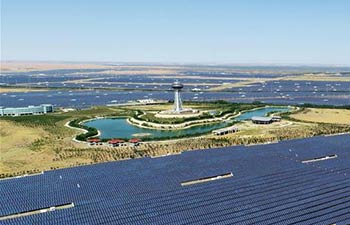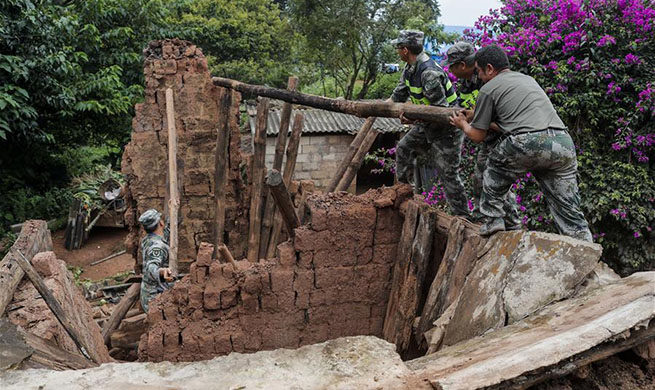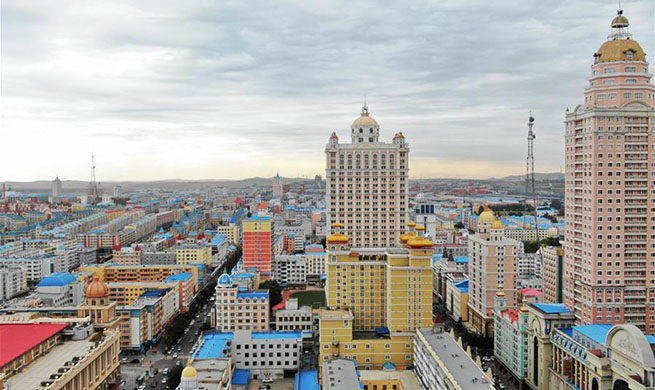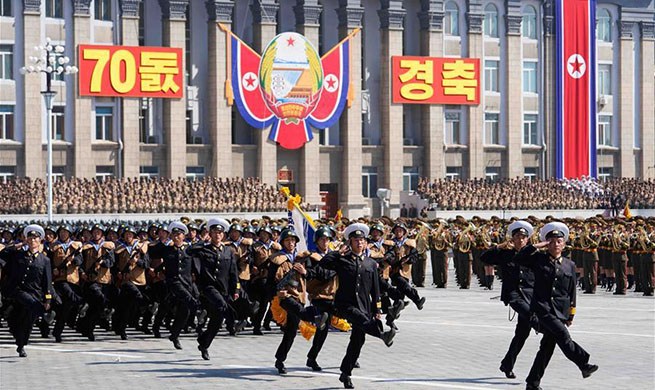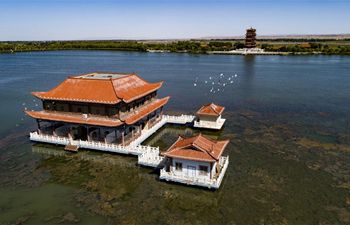ADDIS ABABA, Sept. 9 (Xinhua) -- The Ethiopian Roads Authority on Sunday revealed its plan to renovate the disused roadway that connects Ethiopia with its long-time foe Eritrea and reopen the long-abandoned lane to travelers.
The announcement came amid recent positive developments that are considered a new beginning in bilateral ties. The two countries fought a bloody border war in 1998-2000, which killed an estimated 70,000 people from both sides.
The war ended following a December 2000 Algiers peace agreement, but had left the two countries in a state of bitter armed standoff.
Ethiopia's Prime Minister Abiy Ahmed, who on Wednesday paid Eritrea his second visit since he assumed office in April, promised to further improve ties between the two neighboring countries that were once a single nation. Eritrea declared independence from Ethiopia in 1991.
Ahmed, accompanied by Eritrean President Isaias Afwerki, visited Eritrean ports as land-locked Ethiopia eyes Eritrea's Assab and Metswa ports for its import-export needs, in which conducive road connectivity was said to be vital.
The previously constructed road networks connecting the two countries need renovation, having been kept vacant for more than two decades following the armed standoff.
According to the head of the Ethiopian Roads Authority, Habtamu Tilahun, efforts are underway to build roads to leverage Ethiopia's ambitions to utilize Eritrea's ports.
"In addition to the planned new projects, we are working to finalize the renovation activity within the coming three months period and embark on service provision," Tilahun was quoted by Ethiopia's state news agency as saying on Sunday.
Ethiopia on Thursday reopened its embassy in the Eritrean capital, Asmara; Eritrea's embassy in Addis Ababa was reopened on July 16.
Telecom services between Ethiopia and Eritrea have also resumed, and the two countries' flag carriers -- Ethiopian Airlines and Eritrean Airlines -- have also started flights to Asmara and Addis Ababa respectively.
A decision to construct a pipeline linking Addis Ababa and Eritrea's Assab port has been also unveiled by Ethiopia and the United Arab Emirates.
The pipeline would allow landlocked Ethiopia to export crude oil via the Eritrean port. Ethiopia started test extraction from its Somali Regional State in June.
On Wednesday, Ethiopia's Ahmed, Eritrea's Afwerki and Somali President Mohamed Abdullahi Mohamed signed an agreement strengthening trilateral ties.
In addition to political and economic relations, Ethiopia and Eritrea are also taking steps to strengthen cultural and people-to-people links.
A cultural symposium last month in Addis Ababa brought together 500 participants from both countries.
